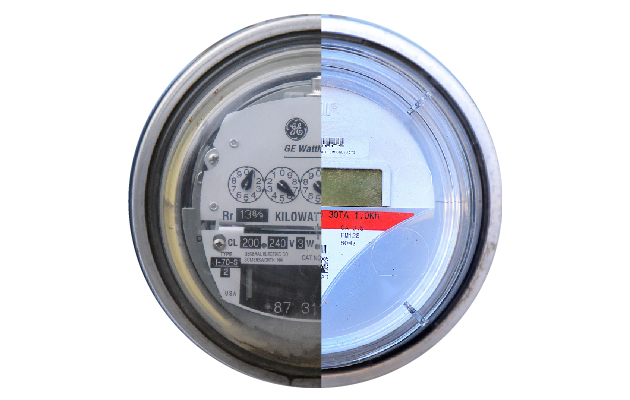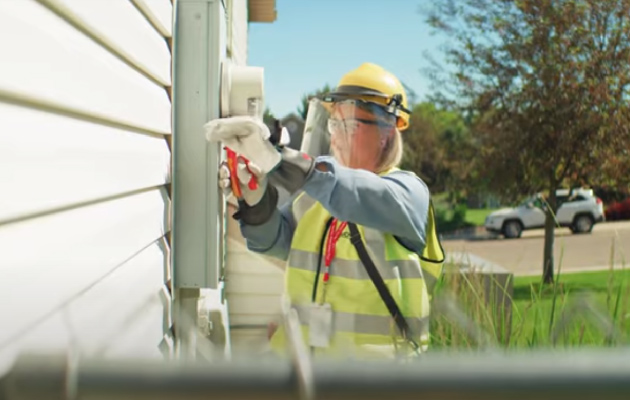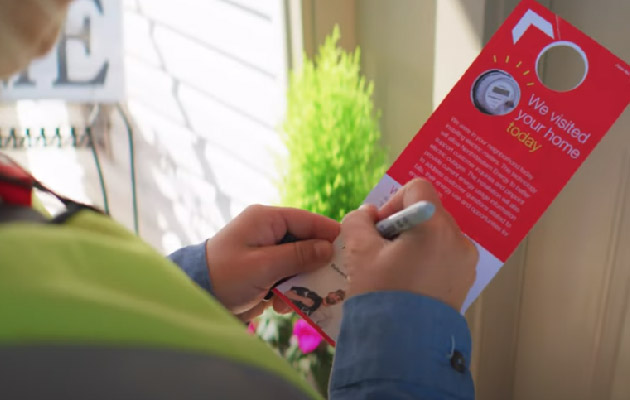Montana Meter Upgrade
NorthWestern Energy will install 590,000 new electric meters and gas modules in Montana.
- This technology upgrade will allow two-way communication between NorthWestern Energy and its meters on customer homes and businesses.
- In most cases, the system will notify NorthWestern Energy of an outage.
- Crews can restore service faster.
- Current energy use information is available for customer questions about bills, energy use and opportunities for energy savings
- System voltage information identifies problems before those problems cause outages.
Montana Digital Meter Upgrade
Moving Toward a Sustainable Energy Future

Moving Toward a Sustainable Energy Future
Advanced Meter FAQs
What is the advanced meter project timeline in Montana?
NorthWestern Energy began installation in Montana in 2021. Here is a list of approximate dates for the Montana Meter Upgrade project by area:
- Missoula Division: completed August 2022
- Butte Division: completed June 2022
- Bozeman Division: completed May 2024
- Billings Division: completed October 2024
- Lewistown District: completed October 2024
- Havre District: completed November 2024
- Helena Division: June 2024 – May 2025
- Great Falls Division: August 2024 – May 2025
Who will change my meter?
NorthWestern Energy contracted with Tru-Check to install the new digital meters, the same company that installed the first generation, one-way communication digital meters in 1998 that are in use today.
Tru-Check technicians will wear apparel with the Tru-Check logo and will carry a NorthWestern Energy contractor identification badge.
Will I have to pay for the meter?
When will the meters be installed and do I need to be home?
Most of the installations will occur Monday through Friday during business hours, though there will be cases when evening or weekend installations may be necessary. Customers don't need to be home.
A door hanger will let residents know their upgrade was successful. If the technician cannot perform the upgrade, a door hanger will be left with instructions to call to make an appointment.
If you are both an electric and natural gas NorthWestern Energy customer, the new electric meter will be installed first and the new gas module will be installed during a follow-up visit to your home or business in about eight weeks.
What happens to the meter on my home or business now?
Are radio frequency (RF) emissions coming from the meters and modules?
Yes. The Federal Communications Commission (FCC) regulates the safety limits for all RF emissions, and smart meter and module emissions make up a small portion of the limit. The RF emissions of the one-way communication meters in use now and the two-way communication meters that are being installed for this technology upgrade are both approved by the FCC. Radio frequency emissions are also produced by common household devices such as microwaves, baby monitors and TVs.
Is customer information protected?
Yes. Customer privacy and security are NorthWestern Energy priorities. The company’s strict security standards have contributed to protecting the energy grid and customer privacy for years. The meters do not collect, store or transmit any personally identifiable information.
The meters measure total energy and cannot differentiate energy usage by appliance or anything else within a home or business. The transmitted energy use information is encrypted.What if I don’t want an upgraded meter?
Customers who want to keep their existing meters can call NorthWestern at 888-467-2669 or email NorthWesternEnergyMeters@northwestern.com to be added to the bypass list. Customers who previously requested an opt out do not need to contact NorthWestern again to be bypassed and keep their meters.
NorthWestern will be reaching out to customers who received an advanced meter despite their request to opt out. For those who still wish to opt-out, NorthWestern will ensure that the advanced meter is removed and replaced with a meter similar to the one that was there before. Customers will not be charged for this service.
Customers who have questions about the advanced meter opt-out program can contact NorthWestern at 888-467-2669
or the Montana Public Service Commission at 1-800-646-6150 or pschelp@mt.gov.
How do I read my meter?

NorthWestern Energy adapts as demands evolve: Brian Bird
Date: Jul 17, 2025
TYPE: News
For over 100 years, NorthWestern Energy, and its predecessor Montana Power, has been at the heart of Montana’s power infrastructure, providing reliable and affordable energy solutions to residents across the state. As the demands of energy consumers continue to evolve, NorthWestern is constantly adapting to ensure long-term reliability and affordability. A key part of this effort is a proposed regulatory rate review. We appreciate all the local businesses, organizations, and residents who recently testified in favor of the review to help maintain the reliability of energy services while managing the growing challenges posed by extreme weather, wildfires, and increasing demand for power.
Montanans need reliable energy service 24 hours a day, 365 days a year. NorthWestern’s role in meeting that demand is a critical one. We have made significant investments in infrastructure and technology, ensuring that our services meet the high standards of safety, reliability, and efficiency that Montana residents expect. In fact, NorthWestern customers experienced 99.98 percent reliability in 2023, placing the utility in the first quartile of energy companies nationwide. Additionally, energy bills for Montana customers are consistently lower than the national average, thanks to NorthWestern’s efficient operations and careful management.
However, maintaining that high level of reliability, while preparing for future energy needs and extreme weather events, requires continued investment in both infrastructure and technology. The last decade has seen a focus on grid resiliency, a priority that grows ever more important as weather events like wildfires, storms, and cold snaps become more frequent and severe. NorthWestern’s proactive approach includes upgrades to electrical systems, better monitoring through advanced field cameras, and aerial and ground assessments to detect potential issues before they cause damage or disruptions.
Moreover, the utility is working hard to address challenges related to the growing demand for energy. By expanding its capacity for on-demand power and embracing renewable energy sources like wind and solar, NorthWestern is ensuring that it can meet energy needs while also protecting the environment. In fact, about 60 percent of the energy serving NorthWestern’s Montana customers is carbon-free, well above the national average of 40 percent. These initiatives not only help ensure the utility is operating as sustainably as we can but also support efforts to integrate renewable energy into the grid in a way that doesn’t sacrifice reliability.
One of NorthWestern’s most notable recent investments is the Yellowstone County Generating Station (YCGS), which began serving customers in 2024. This new power station plays a pivotal role in maintaining grid reliability, especially during peak demand periods and extreme weather events. By reducing reliance on higher-cost energy market purchases, YCGS will ultimately help keep rates lower for our customers.
In addition to providing affordable and reliable power, NorthWestern’s operations are a key economic driver in Montana. In 2024, our company’s activities generated a remarkable $2.59 billion in economic impact, supporting over 15,700 jobs and generating $532.7 million in wages. This economic contribution extends beyond direct employment; NorthWestern also supports $195.3 million in state and local property taxes, which fund essential public services like schools and roads. By ensuring competitive rates and driving economic development, NorthWestern is helping to create new jobs, expand the state’s tax base, and boost the overall economy, benefiting both customers and communities across Montana.
While NorthWestern understands very well that Montanans are facing rising costs across the board, we are working diligently to help those who need assistance with their energy bills. We offer several programs, including payment options, energy assistance referrals, a bill discount for qualified customers and energy efficiency programs. NorthWestern’s energy efficiency initiatives helped customers save enough energy in 2024 to power over 6,500 homes, further supporting efforts to keep costs down.
The request for a regulatory rate adjustment is not one NorthWestern makes lightly, but it is necessary for the utility to continue meeting Montana’s growing energy needs, improving grid resiliency, and ensuring that future generations of Montanans have access to reliable, affordable, and sustainable energy. With ongoing investments and innovative solutions, NorthWestern Energy is meeting these challenges head-on today, while providing lasting benefits to Montana families and businesses alike.
Brian Bird President & CEO, NorthWestern Energy




